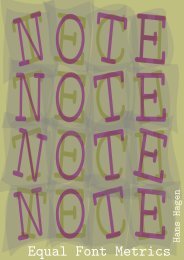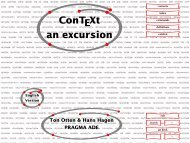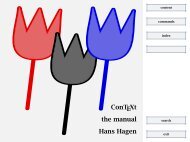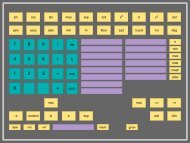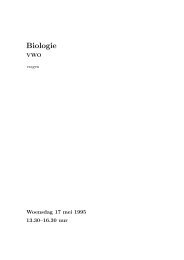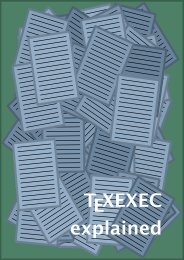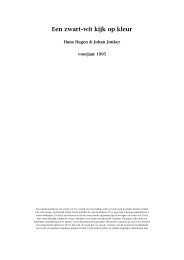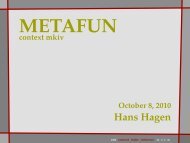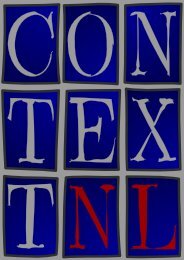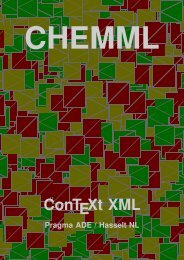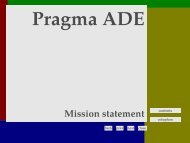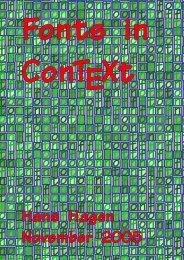The history of luaTEX 2006–2009 / v 0.50 - Pragma ADE
The history of luaTEX 2006–2009 / v 0.50 - Pragma ADE
The history of luaTEX 2006–2009 / v 0.50 - Pragma ADE
Create successful ePaper yourself
Turn your PDF publications into a flip-book with our unique Google optimized e-Paper software.
One can question if a properly working mechanism should be replaced. Not only is<br />
there hardly any speed to gain (after all, not that many graphics are included in documents),<br />
a Lua–TEX mix may even look more complex. However, when an opened-up TEX<br />
keeps evolving at the current pace, this last argument becomes invalid because we can<br />
no longer give that TEXie code to Lua. Also, because most <strong>of</strong> the graphic inclusion code<br />
deals with locating les and guring out the best quality variant, we can benet much<br />
from Lua: le handling is more robust, the code looks cleaner, complex searches are<br />
faster, and eventually we can provide way more clever lookup schemes. So, after all,<br />
switching to Lua here makes sense. A nice side effect is that some <strong>of</strong> the mentioned plugins<br />
now take a few lines <strong>of</strong> extra code instead <strong>of</strong> many lines <strong>of</strong> TEX. At the time <strong>of</strong> writing<br />
this, the beta version <strong>of</strong> MkIV has Lua based graphic inclusion.<br />
A disputable area for Luacation is multipass data. Most <strong>of</strong> that has already been moved<br />
to Lua les instead <strong>of</strong> TEX les, and the rest will follow: only tables <strong>of</strong> contents still use a TEX<br />
auxiliary le. Because at some point we will reimplement the whole section numbering<br />
and cross referencing, we postponed that till later. <strong>The</strong> move is disputable because in<br />
the end, most data ends up in TEX again, which involves some conversion. However,<br />
in Lua we can store and manipulate information much more easily and so we decided<br />
to follow that route. As a start, index information is now kept in Lua tables, sorted on<br />
demand, depending on language needs and such. Positional information used to take up<br />
much hash space which could deplete the memory pool, but now we can have millions<br />
<strong>of</strong> tracking points at hardly any cost.<br />
Because it is a quite independent task, we could rewrite the MetaPost conversion code<br />
in Lua quite early in the development. We got smaller and cleaner code, more exibility,<br />
and also gained some speed. <strong>The</strong> code involved in this may change as soon as we<br />
start experimenting with mplib. Our expectations are high because in a bit more modern<br />
designs a graphic engine cannot be missed. For instance, in educational material,<br />
backgrounds and special shapes are all over the place, and we're talking about many<br />
MetaPost runs then. We expect to bring down the processing time <strong>of</strong> such documents<br />
considerably, if only because the MetaPost runtime will be close to zero (as experiments<br />
have shown us).<br />
While writing the code involved in the MetaPost conversion a new feature showed up<br />
in Lua: lpeg, a parsing library. From that moment on lpeg was being used all over the<br />
place, most noticeably in the code that deals with processing xml. Right from the start I<br />
had the feeling that Lua could provide a more convenient way to deal with this input format.<br />
Some experiments with rewriting the MkII mechanisms did not show the expected<br />
speedup and were abandoned quickly.<br />
Challenged by lpeg I then wrote a parser and started playing with a mixture <strong>of</strong> a tree<br />
based and stream approach to xml (MkII is mostly stream based). Not only is loading<br />
xml code extremely fast (we used 40 megaByte les for testing), dealing with the tree is<br />
also convenient. <strong>The</strong> additional MkIV methods are currently being tested in real projects<br />
174 <strong>The</strong> luacation <strong>of</strong> TEX and ConTEXt



